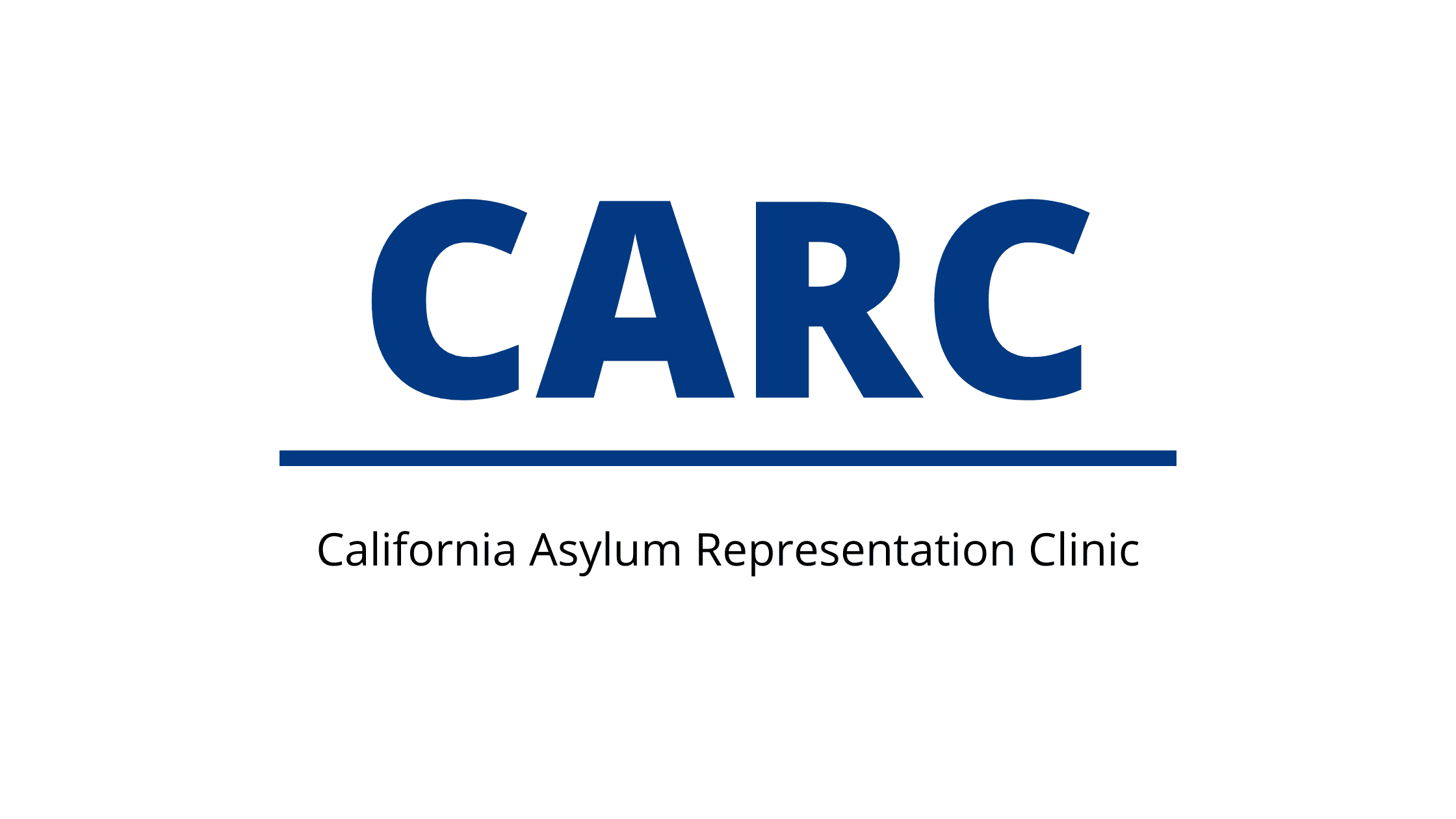
CARC partners with the East Bay Sanctuary Covenant (EBSC), a Board of Immigration Appeals recognized nonprofit organization, to assist low-income individuals and families fleeing violence and persecution with their asylum cases. Based right here in Berkeley, EBSC is one of the highest volume providers of asylum representation in the United States.
CARC’s primary mission is to help guide and represent asylum seekers. CARC aims to create a community of law students passionate about working with asylum seekers as they assist clients throughout their asylum cases. CARC also provides resources about events, jobs and internships, and advocacy related to asylee and immigrant rights, as well as opportunities for participants to connect with others committed to similar social justice issues and/or career paths.
Once students are accepted into CARC, they are assigned to teams of two based on their interests, language ability, and past experience. Occasionally students will work on a case alone, but more typically they work in pairs. An initial training covers client interviewing skills, ethics and confidentiality, asylum law, case management, and working with interpreters. There will also be training on trauma-informed lawyering and declaration writing. Following this training, student pairs are assigned an affirmative asylum case and a supervising EBSC attorney. Over the course of the semester, students interview the client, draft the client’s declaration, prepare the asylum application, collect additional evidence, and potentially accompany the client to the Asylum Office interview (timing dependent). Additional trainings will address trauma-informed lawyering practices, declaration writing, and preparing for Asylum Office interviews. Students will develop skills for client-centered lawyering and gain an understanding of substantive asylum law. Client meetings may be remote or on-site, depending on EBSC’s capacity.
Supervision: Students providing pro bono legal services through CARC will be trained and supervised by an attorney from the East Bay Sanctuary Covenant (EBSC).
Time Commitment: Participants should be ready to attend mandatory trainings at the beginning of the semester. After that, hours will vary by week as students work on their individual cases, but students should expect to dedicate an average of 20-25 hours per semester to CARC. Those who are interested may have opportunities to spend more time supporting their clients, depending on their case.
For more information, please contact the student leaders at carc@berkeley.edu.